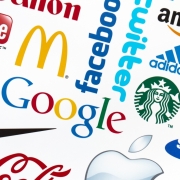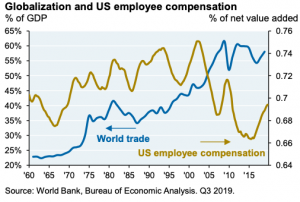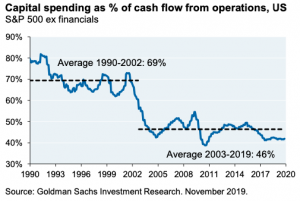Corporatism Is An Economic And Social Scourge. Entrepreneurs Are Our Defense.
We hear a lot of talk about breaking up “Big Tech” – companies like Alphabet, Amazon, and Facebook. This thinking stems from a kneejerk leftism that equates corporate scale with consumer disutility. Yet the size of corporations, in and of itself, is not damaging to consumers, and can often deliver efficiency benefits and lower prices.
Corporations become big because they serve the needs of consumers and customers well. It’s what they do after they become big that causes economic problems. It’s the attitude and behavior of big corporations that constitute the problem, not their size per se. Let’s apply the term corporatism to these attitudes and behaviors. Here’s a partial list.
They seek to tell us what our values should be, when it’s none of their business.
Sustainability. Climate Activism. Diversity. Gender identity issues. The progressive activists who run many of our big companies want to tell us to make a social justice statement when we buy their products and services. They use social justice as a marketing tool to impose their cultural values.
This is, effectively, anti-capitalism. Free market capitalism results in social benefits when individual entrepreneurs and firms produce quality goods and services that consumers prefer. The values those consumers embrace are no business of big tech or any other big companies.
They have created and are in the process of enforcing the surveillance economy.
While new technologies have huge potential for consumer betterment, big corporations have chosen to focus on customer data collection for the purposes of targeted advertising. It’s a horrible misdirection of effort, and it’s tremendously unproductive. The outcome has been a surveillance society. Consumers are uncertain about when and how their behavioral data are being collected, to whom it is being sold, and for what purpose it is being used. Consumers are increasingly paranoid about corporate surveillance. Companies are supposedly in the business of generating value experiences for consumers: facilitating the feeling that their lives are improving. The opposite is now the case: consumers are increasingly feeling vulnerable and exploited.
They treat customers as ATM’s.
Big companies’ consumer goals have shifted from satisfaction to loyalty. Satisfaction is an emotional measure: it seeks to understand how consumers feel, recognizing that consumer value is an experienced benefit. Consumer loyalty is simply financial math: how many times do consumers buy, repeat purchase, and subscribe. How can they be locked-in? Satisfaction is presumed if so-called loyal behavior is observed. Exotic pricing schemes, always aimed at ratcheting up the cash flow from individual consumers, become more and more complex and more and more opaque in the extraction of cash from the consumer ATM. In effect, the big companies dictate to consumers how much they must spend to qualify for the company’s approval of their behavior.
They actively undermine the US economy and the security of their own employees.
Big multi-national companies are the drivers of the phenomenon known as globalization, which can be interpreted as a redistribution of America’s wealth to other countries. Multi-national companies have no vested interest in America’s wealth, only in their own. One direct effect of globalization has been the reduction in US employee compensation (see chart from World Bank). On other words, the multi-nationals have traded away American employee compensation, security and benefits like healthcare, in favor of lower cost employees in other countries. The so-called global supply chain is simply an arbitrage to disfavor American workers.
Big corporations distort America’s financial markets.
Big corporations pursue stock buybacks more than hiring and capital investment. Corporate demand for stock relative to investor demand is high. Buybacks were the single largest source of US equity demand each year from 2011 to 2019, averaging $50 billion annually. In comparison, average annual demand from households, mutual funds, pension funds, and foreign investors was less than $10 billion each. Capital spending as a % of cash flow from operations for the US S&P 500 ex financials averaged 69% from 1990-2002, but only 46% from 2003-2019.
As they get bigger, corporations draw closer to government.
Free market capitalism is the citizens’ defense against the encroachment of government. Government produces nothing; it exists by extracting from the economy the value generated by others. Free market firms counteract this ever more voracious extraction by continually generating even more value, increasing productivity and economic growth faster than government can dissipate it.
But once they get big, many corporations redirect their resources from value generation to government integration. They build up their lobbying capacity, they seek government as a customer for their surveillance technology, they write protectionist laws, either directly or through lobbying and consulting, and they fund elections. They cease to be the people’s defense against government and become part of the problem.
The alternative is entrepreneurship.
Governments despise entrepreneurs since they are not a significant source of tax revenues, and because they are the sworn enemies of the status quo that the government is dedicated to preserving, strengthening and concretizing via bureaucracy and regulation. Entrepreneurs are engaged in purposive economic activity for others: their total effort is focused on customer betterment and new ways to generate value. They have no time or money for lobbying, they’re not ready for stock buybacks, and they’re interested in meeting customers’ needs through innovation. They embrace competition as a spur to continuous improvement. They don’t seek to leverage their scale.
Entrepreneurs refuse to accept the nightmare of corporate employment, preferring the fulfillment that comes from being a free market producer. The more we can cultivate a spirit of entrepreneurship, the better chance we have of surviving the current wave of corporatism.






